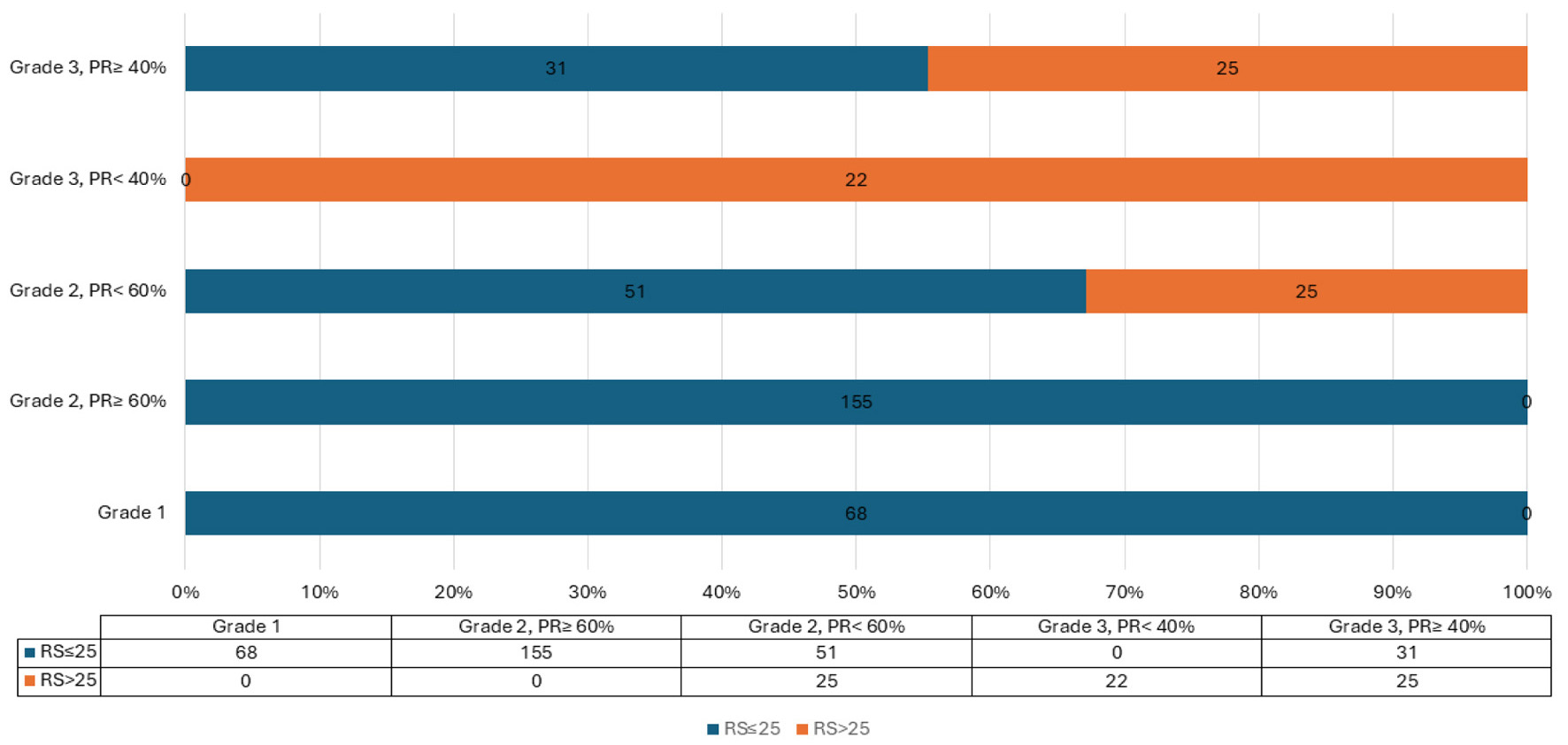A Simplified Novel Algorithm to Predict the 21-Gene Recurrence Score
DOI:
https://doi.org/10.14740/wjon2634Keywords:
21-gene recurrence score, Oncotype DX, Breast cancer, Predictive algorithm, Progesterone receptor, Histologic gradeAbstract
Background: The 21-gene recurrence score (Oncotype DX) guides adjuvant chemotherapy decisions in early-stage estrogen receptor (ER)-positive, human epidermal growth factor receptor-2 (HER2)-negative breast cancer. However, its high cost and limited availability motivate the development of simplified predictive models using routinely reported pathology parameters. The aim of this study was to develop and validate a practical, rule-based algorithm that predicts Oncotype DX recurrence score (RS) category using only histologic grade and progesterone receptor (PR) expression percentage.
Methods: This retrospective study included 528 patients with ER+/HER2- early breast cancer who underwent Oncotype DX testing. Cases were randomly assigned to a learning (n = 377) and validation (n = 151) set. Univariate analysis and receiver operating characteristics (ROC) curves were used to determine PR% cut-offs within each histologic grade to stratify patients into low-risk (RS ≤ 25) or high-risk (RS > 25) categories. A stepwise algorithm was derived from these parameters and tested in the validation cohort.
Results: Histologic grade and PR% were significantly associated with RS. Grade 1 tumors were uniformly low-risk regardless of PR%. In grade 2, PR ≥ 60% achieved 100% sensitivity for low RS; in grade 3, PR < 40% achieved 100% sensitivity for high risk. The algorithm confidently stratified ∼ 65% of cases. In the validation set, the model showed 87.5% sensitivity, 100% specificity, 100% positive predictive value (PPV), 99% negative predictive value (NPV), and 99% overall accuracy.
Conclusion: This simplified algorithm accurately predicts Oncotype DX RS category using only histologic grade and PR%. It enables confident risk stratification in most patients without molecular testing, offering a low-cost, practical tool for clinical decision-making, particularly in resource-limited settings.

Published
Issue
Section
License
Copyright (c) 2025 The authors

This work is licensed under a Creative Commons Attribution-NonCommercial 4.0 International License.









